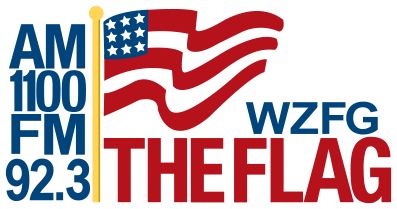By: Leah Backstrom
Election Day is less than a week away. Early voting has already begun as people make their way to the ballot boxes. Besides state, city and county candidates, there are four measures that will be on the ballot. Here is a summary of those measures, who is for them and who is opposed.
Measure 1: Elections and Government Accountability
Measure 1 establishes an anti-corruption and ethics commission for North Dakota. If passed, it would be a Constitutional amendment adding a new article to the North Dakota Constitution to establish the ethics commission. The amendment is divided in four sections including transparency, lobbyists and conflicts of interest, North Dakota Ethics Commission, and general provisions. This measure was written and submitted by North Dakotans for Public Integrity Committee (Public Integrity Committee).
Representative for the Public Integrity Committee, and former president of Valley City State University Ellen Chaffee says, “North Dakota is one of seven states that does not have an ethics commission...The most important role in an ethics commission is to define what’s ethical and educate people about that.”
A committee known as North Dakotans for Sound Government (NDSG) is in opposition to Measure 1. One of the concerns of this measure they address is how it may override the rest of the North Dakota Constitution.
North Dakota Senator Jessica Unruh states, as the spokesperson for NDSG, “The content of the measure actually provides a fourth branch of government that is more powerful than our judicial, legislative, and executive branches…It removes the entire structure of the way the rest of our government is set up and allows this group to do really to do whatever it's that they see fit.”
Unruh continues, “The proponents have been saying, as people have been asking them about these issues, ‘Oh, the legislature can fix this.’ It is a constitutional amendment. The legislature cannot change the constitution.”
Measure 2: Suffrage
Measure 2 would add a section in Article II of the ND Constitution that says, “"Only a qualified elector may vote in any general, special, or primary election for a federal, statewide, state legislative, district, county, township, city, or school district office, or for a statewide, district, or political subdivision ballot measure." It would also amend the provision in the constitution that says "every citizen" of the United States is a qualified elector to say that "only a citizen" of the United States is a qualified elector.”
Measure 2 was written to better define who can vote in state elections and prevent voter fraud from non-U.S. citizens. North Dakotans for Citizen Voting argues that by not changing “every” to “only” in Article II, it leaves a window of opportunity for non-citizens to exploit the current voter laws.
The opposition argues that Measure 2 is unnecessary as this issue has not been a prominent problem so far.
An editorial by Inforum.com states, “ Measure 2 is a silly idea, utterly lacking in merit. It seeks to amend the North Dakota Constitution to specify that ‘only a citizen’ of the United States is a qualified voter. In fact, the North Dakota Constitution already defines a voter as a U.S. citizen.”
Measure 3: Legalization of Recreational Marijuana
The legalization of marijuana is one of the most highly debated and widely known topics on the ND November ballot. Measure 3, if passed, would legalize recreational marijuana and expunge individuals convicted for a legalized controlled substance. Many states have already legalized recreational and medicinal marijuana.
David Owen, Chairman of the Legalize ND, says he wrote Measure 3 to address individual freedom, personal liberty and ultimately criminal reform. “For me, Measure 3 is about ending the horrible prohibition and war on drugs and, at the same time, creating a new industry for our farmers to grow the greatest cash crop of our generation.”
ND Against the Legalization of Recreational Marijuana strongly opposes the measure for many reasons, but the most prominent issue seems to be how Measure 3 is written. “This is simply bad law. It’s going to creating unlimited, unregulated, uncontrolled marijuana. There are no revenue streams attached to it. It’s poorly drafted. It creates a lot more problems in interpretation than it answers.” Says Chairman Bob Wefald.
Owen’s Response, “This law was designed to be modular, implementable, executable, day one, while allowing for a simple majority to add regulation to change the section 5 as they saw fit…and ultimately there will be changes made by the legislator.”
Medical Marijuana is in the works for North Dakota but has yet to move to distribution phase for qualified patients.
Measure 4: Civil Service and Parks
Measure 4 was written in support of volunteer emergency responders, and would require providing emergency responders with distinct license plates (at-no-cost to them) that serve as an entrance pass to state parks.
Jamestown fire chief Jim Reuther says, "It could help with the (police) officers in letting firemen into the scene if they drive their own vehicles. My opinion is this is well-deserved. Volunteers don’t seem to get enough credit."
At this time, there is no opposition committee to Measure 4.
The full measures are available for anyone to read at AM 1100 The Flag Election Headquarters. If you are a North Dakota resident, get out and vote November 6.







